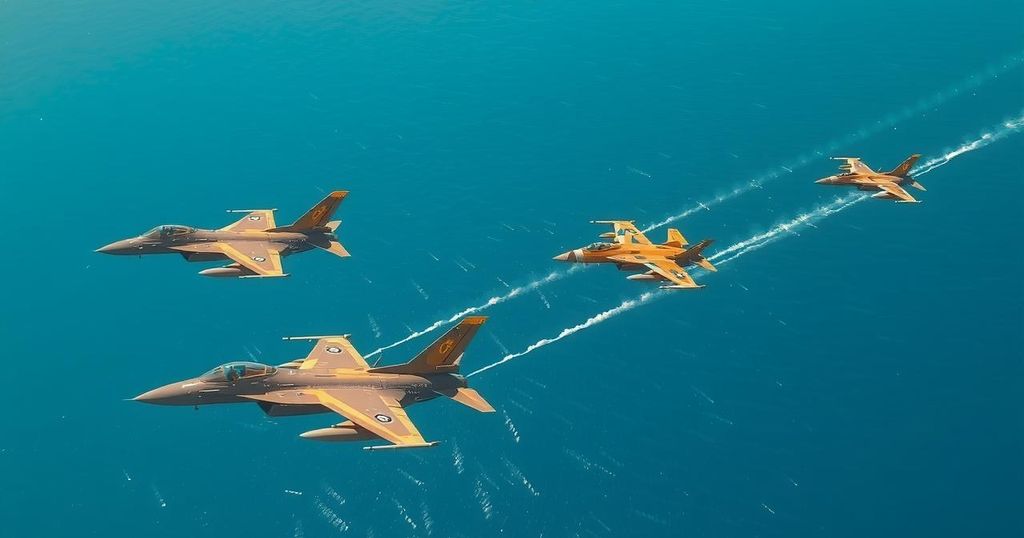Iran and Saudi Arabia to Conduct Joint Military Drills in the Red Sea
Iran has announced that Saudi Arabia will participate in historic military drills in the Red Sea, a significant move for the two nations that have recently restored diplomatic relations. Admiral Shahram Irani stated that Saudi Arabia requested Iran’s organization of these exercises. Pending official confirmation from Saudi Arabia regarding its participation, the backdrop of ongoing conflicts in the region continues to shape their interactions.
Iran has announced that Saudi Arabia will participate in joint military drills in the Red Sea, marking a significant milestone for the two nations that recently restored their diplomatic ties after a long-standing rivalry. Admiral Shahram Irani, the commander of the Iranian Navy, revealed that Saudi Arabia had reached out to Tehran to coordinate these military exercises in the Red Sea, as reported by the Iranian news agency ISNA. However, specific details regarding the timing of the exercises remain undisclosed. Meanwhile, Iran has been conducting joint naval exercises with Russia and Oman since the weekend. Saudi Arabia has not yet confirmed its involvement in these military maneuvers. Historically, Saudi Arabia has acted as a regional counterweight to Iran, often aligning with groups opposing Iranian influence in the Middle East. The diplomatic relationship between the two nations had deteriorated significantly in 2016 but resumed following a surprising reconciliation facilitated by China in 2023. In the backdrop of these developments, Saudi Arabia has maintained a cautious stance regarding the ongoing Israel-Hamas conflict, advocating for a ceasefire without committing to any direct military involvement. Notably, the kingdom has opted out of the US-European naval coalition that aims to safeguard merchant vessels from Houthi rebel attacks in the Red Sea. The Houthis, a group based in Yemen, have conducted numerous assaults on military and commercial vessels in the region, claiming solidarity with Hamas amidst the conflict in Gaza. This situation has complicated Saudi Arabia’s earlier initiatives to achieve peace in Yemen, where it has actively supported the internationally recognized Aden government against Houthi forces, which are backed by Iran. Reports about the prospective Iran-Saudi naval drills coincide with Iran’s ongoing joint military exercises with Russia and Oman, which commenced on Saturday in the Indian Ocean. These drills, referred to as “IMEX 2024,” are intended to enhance regional collective security, promote multilateral cooperation, and showcase the capabilities of participating nations in ensuring maritime safety and peace.
The relationship between Iran and Saudi Arabia has traditionally been marked by rivalry, primarily due to their differing geopolitical interests and sectarian affiliations, with Iran being predominantly Shia and Saudi Arabia being predominantly Sunni. The severing of diplomatic ties in 2016 heightened tensions, as both countries backed opposing sides in conflicts throughout the Middle East, particularly in Yemen and Syria. The recent restoration of relations, brokered by Chinese mediation, signals a potential shift towards cooperation in a region often rife with discord. In light of the ongoing conflicts, particularly the Houthi rebel attacks in the Red Sea and the complex dynamics surrounding the Israel-Hamas war, this collaboration could play a critical role in stabilizing the region.
In conclusion, the announcement of joint military drills between Iran and Saudi Arabia in the Red Sea signifies a historic development in their recently restored diplomatic relations. While the precise details and confirmation from Saudi Arabia remain pending, this cooperation could potentially alter the security landscape in the region, especially amid ongoing conflicts in Yemen and Gaza. The alignment of these two historically rival nations underlines the evolving dynamics in Middle Eastern geopolitics, with both nations navigating a landscape fraught with challenges but now possibly leaning towards collaboration.
Original Source: nypost.com




Post Comment